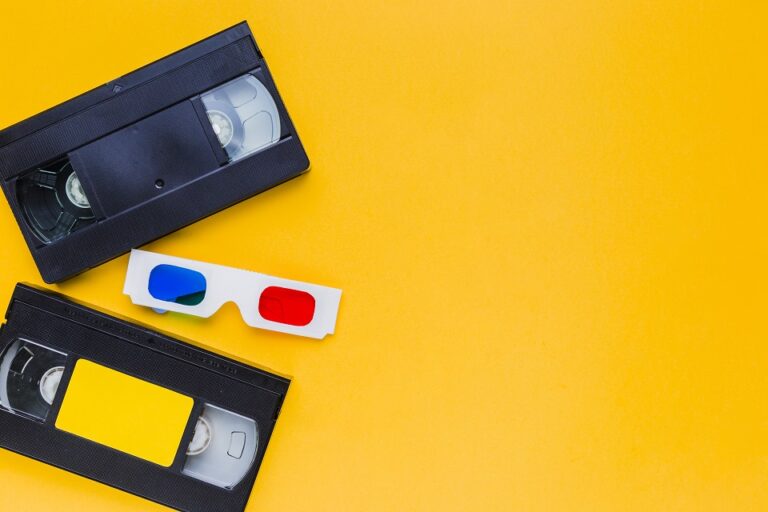VHS tapes, once a staple of home entertainment, are now a relic of the past.
However, they still hold our precious memories and moments that we wish to preserve. As time goes by, these tapes degrade, making it increasingly important to transfer your VHS tapes to digital format.
In this article, we’ll explore VHS tape degradation, factors affecting their lifespan, and how to preserve these invaluable keepsakes for future generations to enjoy.
What Are Old VHS Tapes?
VHS (Video Home System) tapes were a popular format for recording and playing video content from the late 1970s to the early 2000s. These tapes consist of a magnetic tape encased in a plastic shell, with video and audio signals recorded on the tape’s surface.
VHS tapes allowed families to record special moments, making them a treasure trove of memories.
Understanding VHS Tape Degradation
Over time, VHS tapes degrade due to the nature of the magnetic tape and the way they’re stored. The magnetic particles on the tape’s surface can lose their charge, resulting in a loss of image and sound quality.
This degradation is inevitable, and the only way to prevent complete loss of the content is to transfer the tape to a more stable digital format.
Factors That Affect VHS Tape Lifespan
Several factors can affect the lifespan of a VHS tape, including:
Storage conditions: Exposure to extreme temperatures, humidity, or direct sunlight can accelerate tape degradation. Ideal storage conditions include a cool, dry environment away from direct sunlight and magnetic fields.
Frequency of use: Frequent playback and rewinding of VHS tapes can wear down the magnetic coating, causing the quality to deteriorate faster.
Quality of the original tape: The quality of the tape itself can also impact its longevity. Higher quality tapes typically last longer than low-quality ones.
A typical VHS tape lasts up to 10-25 years, but this lifespan can be extended or shortened based on the factors mentioned above.
Preserving Old VHS Tapes
To preserve your VHS tapes, follow these tips:
How To Handle With Care
Handle the tapes with care, avoid touching the magnetic tape surface, and always rewind tapes before storing them.
Store tapes in a cool, dry environment away from direct sunlight and magnetic fields.
Regularly inspect your tapes for signs of mold or damage and take necessary steps to clean and restore them.
However, the only enemy you’ll encounter with manual and personal preservation is that VHS tapes deteriorate over time.
Preservation Tips
If you want to preserve your VHS tapes, we recommend digitizing them. There are two options available: you can either do it yourself or ask for professional help.
However, preserving your VHS tapes on your own requires investing time and money to learn the proper steps and acquiring the right equipment.
Another option is to ask for professional help. While Costco’s service has been discontinued, there are many VHS transfer alternatives available for converting your tapes to digital formats
This process involves converting the analog video and audio signals from the tape into digital files, which can be stored and accessed easily on modern devices.
By transferring your VHS tapes to digital, you’re ensuring the preservation of your memories for future generations.
Conclusion
VHS tapes may be a thing of the past, but they hold priceless memories that deserve preservation. By understanding the factors that contribute to VHS tape degradation and taking steps to maintain their condition, you can prolong their lifespan. However, the best way to safeguard your memories is to transfer your VHS tapes to digital format. Ensure your cherished moments remain accessible and enjoyable for years to come.


